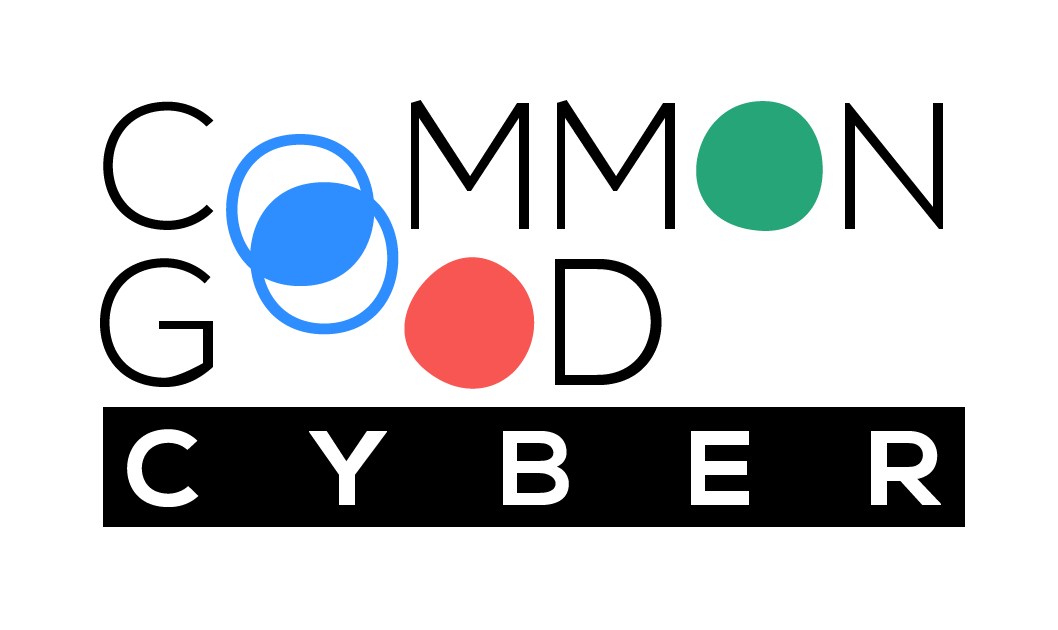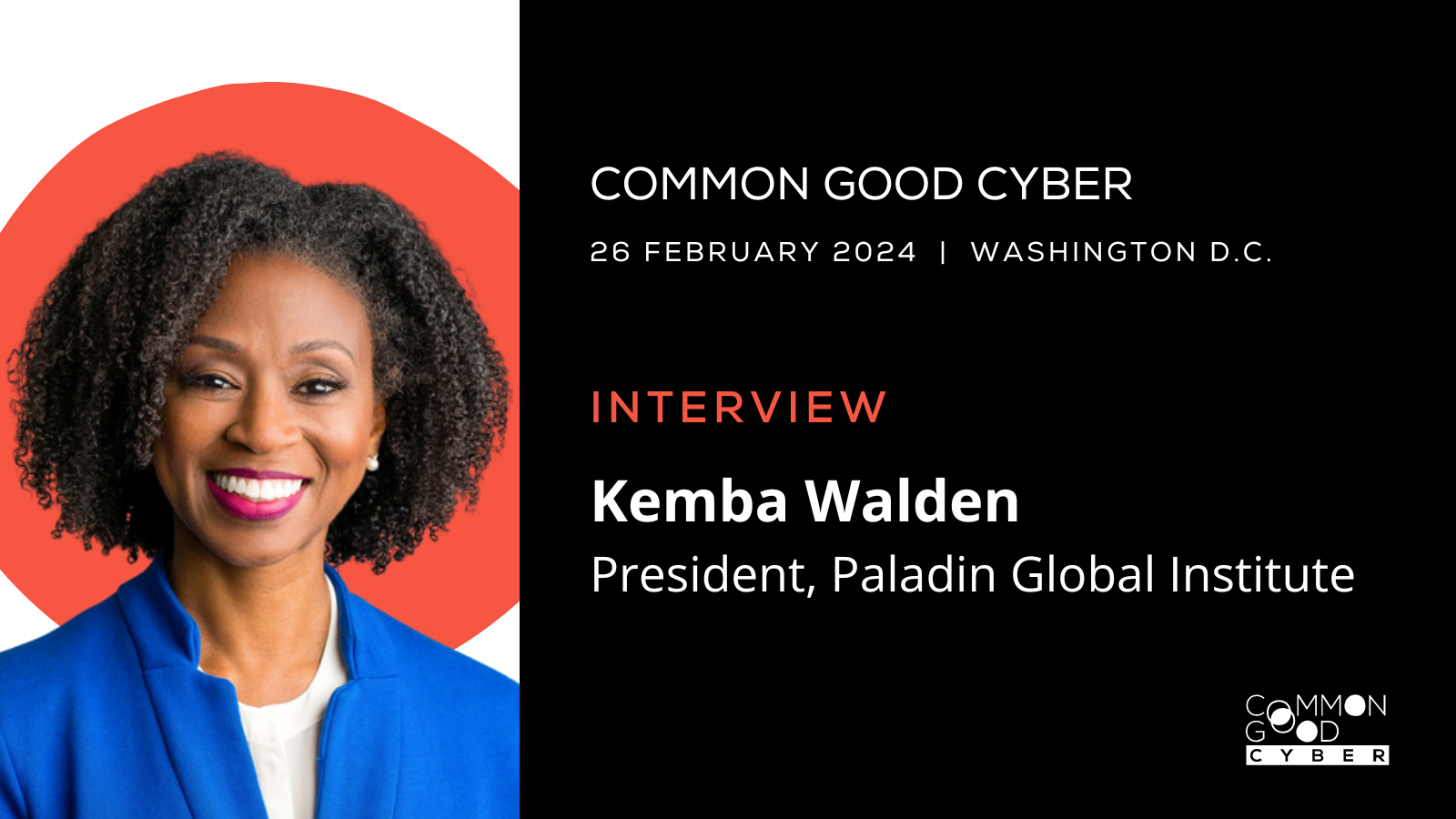We interviewed Kemba Walden, President, Paladin Global Institute, on the sidelines of the first Common Good Cyber Workshop in Washington D.C., which brought together 120 key players in the global cybersecurity field. Common Good Cyber is a collaborative effort aimed at building sustainable funding models to support those who secure the Internet for everyone.
You can watch the full interview HERE.
What’s your message to the cyber community?
I wanted the cyber community to understand the process for securing the Internet project by project, donor by donor, and the challenges that nonprofits face on a regular basis. And then I posited for them the question: consider the risks of not doing something.
It’s critical to understand what the Internet delivers for a civil society, for the best of what we want it to achieve. We rely on it to deliver health services, deliver food, deliver water, deliver basic human needs. We also rely on it to protect human rights, to protect democracy.
What’s at stake if we don’t secure the underpinnings of all that we expect the Internet to deliver? It’s just too great to rely on unsustainable funding models.
Why do you think it’s so hard for some of these organizations to find funding?
I think it’s because they exist kind of like the cartilage in your body. You don’t necessarily see it. They’re not as flashy as your fingers or as your eyes but they’re so necessary. Sometimes it’s difficult for those that rely on the Internet, for those that supply the services, to really understand what it takes to provide DNS service, for example, or what that really means.
How do we create a taxonomy for TTPs for cyber defenders to rely upon? Overall, it’s part of the process for realigning priorities, shifting the burden of cyber risk from those that are under-resourced to those that have the resources to buy it down. It’s a lot of what the United States government was working on before I left the White House.
We need to have workshops like this one that highlight and prioritize what it is we expect from the Internet and the whole purpose of securing the Internet in the first place.
What are your hopes for this gathering and this effort?
My hope is that we find sustainable solutions to the opportunities for securing the Internet.
Nonprofits can’t do it alone. And there are some things that governments shouldn’t do. There are parts of securing the Internet that belong squarely with those that are more resourced to buy down risk. And then there are parts that have to stay in the gap.
We need to find sustainable solutions for securing the Internet so that we can do things like protect human rights, track climate change, and enable our democracy.
What’s the risk if we can’t find more funding for these cyber nonprofits?
Like I said earlier, we have to understand what we expect from the Internet in the first place. We expect the delivery of basic human needs, water, food, shelter, emergency services, health. That’s what’s at stake. That’s why we secure the Internet in the first place. We need to make sure that that security is sustainable and enduring.

